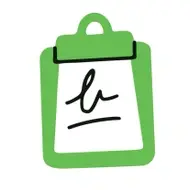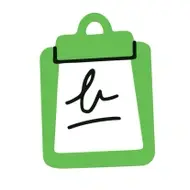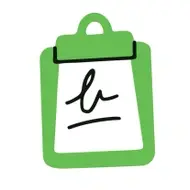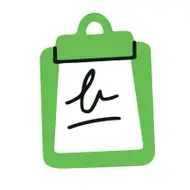How to Get the Most From Reference Checks | 20 Questions to Ask
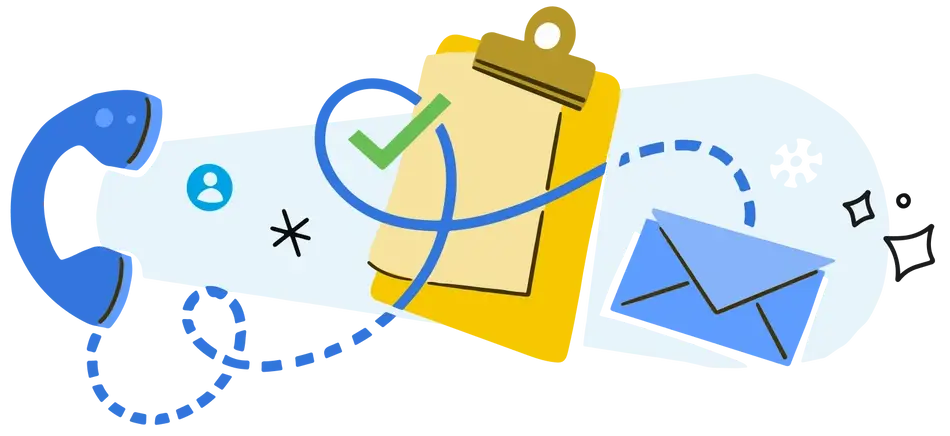
You’ve reviewed resumes, interviewed candidates, narrowed down your top contenders, and now you're ready to make some reference calls. What exactly are you supposed to ask?
Before we dig into that, a word on requesting references...
It's standard for organizations to request candidates provide three references in order to consult multiple perspectives on past experience and performance. Asking for three references also provides some leeway in case you aren’t able to get in touch with one of the individuals.
Some hiring managers specifically request that one of those references be a manager, as it can provide insight into how the candidate performed from someone who directly oversaw them. Consider if there are other people you’d specifically like to hear from, as well, such as the candidate’s colleagues or direct reports.
On the logistics side, make sure to ask your candidate for an email address and a phone number for each reference. While we highly recommend speaking with references over the phone, it may be useful to reach out to folks via email first to schedule a good time to speak. Also, make sure to let the reference know how long you expect the call to last so that they can prepare for the conversation. A short and sweet, 10-15 minute conversation should be all you need to gain valuable insights into a candidate.
How to Make the Most of Reference Checks
When preparing for a reference conversation, there are a number of key points you'll want to go over. Below, we break these down into sample questions you can use based on the role you're hiring for and any information you want to glean about a candidate:
Reference context and background
Reference checks start with confirming who the reference is and what is their relationship to the candidate. Don't rush over these questions—take time to learn about how they worked with the candidate so you can guide the conversation. For instance, if they were in a supervisory position, you may want to ask about the candidate's strengths and weaknesses, as well as challenges overcome. If they were a direct report of the candidate, perhaps you can focus on leadership style.
Here are some examples of questions to get the call started (for simplicity, we’ve chosen a fictional candidate named Lee):
- How long did you and Lee work together?
- In what context did you work with Lee?
- Can you confirm your current organization and title?
- What projects did you work on with Lee most closely?
Remember, the reference check is not an interview of the reference but a chance to confirm what you’ve learned in the interview process and/or gain some clarification on things that may creep up as a red flag down the road.
The candidate's former role and responsibilities
To best avoid instances of bias, try to limit broad questions like "Tell me about Lee" to more specific ones that focus on important traits, such as "How would you describe Lee's work style?"
With that in mind, here are a few questions targeted to learning more about a candidate’s experience and determining how those may set them up for the role you’re hiring for:
- What were Lee’s specific responsibilities when you worked with them? What do you feel were Lee’s biggest strengths in those responsibilities? What were the biggest challenges for Lee in that role, and how did they deal with them?
- We’re considering Lee for [insert job title] where they would be responsible for X, Y, and Z. Do you think Lee could perform well in this role? Why or why not?
- In the role we’re hiring for, we are looking for someone who is (characteristics such as adaptable, able to work well in a fast paced environment, etc). How do you think that aligns with Lee’s strengths and areas for development?
- Are there things that you look forward to seeing Lee develop in future roles?
The candidate's work and leadership styles
It is very informative to hear former managers describe how a candidate gets their best work done. Additionally, it can be helpful to learn more about how the candidate works with others, as well as what leadership sensibilities they’ve shown in previous roles. Here are some questions to uncover work and leadership styles:
- Can you provide a couple of examples of how you’ve seen Lee’s working style in practice?
- What are things you’ve noticed that set Lee up to be able to do their best work? (Answers might include working on a team, clear deadlines, supporting setting goals for a project, etc.)
- What are your favorite things about working with Lee?
- What are some things about Lee’s working style that you’d like to see them improve on?
- Can you provide an example of a time when Lee faced a challenge or a great deal of stress and how they handled that situation?
- (If interviewing a former manager) What are pieces of advice that you have for how to best manage Lee?
The candidate's social and emotional intelligence
Reference checks are also an opportunity to learn more about how your candidate demonstrates emotional intelligence.
Emotional intelligence refers to the ability to identify and manage your own emotions as well as the emotions of others. You may find it helpful to ask for situational examples in order to get details about how the candidate has exhibited these behaviors in the past. Here are a few options to learn more about a candidate’s social and emotional intelligence:
- Did Lee have to work in collaboration with others to complete a project? If yes, were you able to get a sense of how they worked with peers/other staff/volunteers?
- In working with others (peers/interns/volunteers/managing other staff) either formally or informally, what are two of Lee’s strengths and two of Lee’s areas for development when it comes to handling conflict?
- What were Lee’s biggest contributions to the office culture?
Space for final thoughts
A good way to catch any blind spots in your conversations with references is to ask if you missed anything. It can be a nice opportunity for your reference to share any last reflections, something else that came up for them in answering your questions, or an important insight that didn’t get addressed earlier. Some questions you might consider are:
- Is there anything I didn’t ask about Lee that you think I should know, or we didn’t get a chance to talk about?
- Any last thoughts you’d like to share about working with Lee?
- Do you have any questions about the role or what we’re looking for?
We hope this guide is helpful as your team gears up for your next reference check! Need to keep candidates warm as your team moves through this process? Here are two email templates to help you craft the right message to potential hires.



